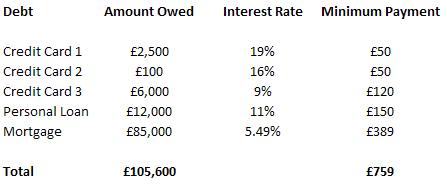Credit Referencing – When you Apply for Credit
Many people don’t realise but whenever you apply for credit, whether it is a mortgage, credit card, monthly contract mobile phone etc, part of the application process is that you give permission for the lender to check with a Credit Reference Agency (CRA) into your credit history.
Based on the information stored there, together with the information in your application, they make a decision as to whether to offer you credit or not.
Shrewd Tip – it is shrewd to check your credit records before applying for large loans such as mortgages, car loans etc – to be refused credit as a result of an error on your credit record can be heart-breaking – it could mean losing the purchase of a new home – check well in advance to make sure there are no nasty surprises lurking in your credit record.
What is a Credit Record?
Most adults in the UK will have a credit record – this credit record contains information such as
Name
Address history
Electoral Roll listing
Details of individual agreements – e.g. credit cards, loans, mortgages, current accounts etc.
In respect of each “entry” it will contain information on the name of the lender, the credit limit, the current balance, whether the monthly payments are up to date, whether there have been any arrears on the account etc.
Why should I be interested in this?
As with all things, information stored in these credit records can be incorrect and therefore it is wise from time to time to obtain a copy of your credit records to check that no errors are showing which could be detrimental to any future application for credit.
How do I obtain my Credit Report?
There are 3 main Credit Reference Agencies in the UK and they are required by law to provide you with a copy of your record – a statutory report – on request.
They can currently charge a fee of £2 and access to your report is available under section 7 of the Data Protection Act 1998.
Some of the companies offer additional services such as allowing you to access your records on line – for this they charge additional fees – but if you only wish to check your current report then you need to apply for a copy of your statutory report for which the current fee is just £2.
g(16300630)a(1648697))
Below are details of how to request a copy of your credit report from each company:
Experian
You can obtain a copy of your credit report by visiting their site here and downloading and returning their application form.
Equifax
You can obtain a copy of your credit report by visiting their site here. Again, download their application form, complete it and send off with your cheque for £2.
Call Credit
Visit their site here.
Remember – to just obtain a copy of your credit record you need to request the statutory report for which the fee is currently £2. We have not linked to their application forms as the version or location may change – you need to search their sites for the application forms.
What should I do when I receive my report?
IMPORTANT!
Firstly read through it and the accompanying booklet explaining about your credit record. Then go through it to check that all the entries are correct.
If any of the entries are incorrect then you can either contact the Credit Reference Agency or the originator of the information (e.g. credit card company) and explain what is wrong, why it is wrong and ask them to correct it.
If this fails to correct the situation then it would be shrewd to make a second request for the information to be corrected – and it would also be shrewd to send this request by recorded delivery to prove they have received the request.
In the event that they fail to correct the mistake then you are entirely within your rights to make a complaint to the Office of the Information Commissioner.
We would welcome your comments on this article, together with an hints or tips you could pass on to other readers in respect of your own experiences with credit reports, credit report agencies and the Information Commissioner.
